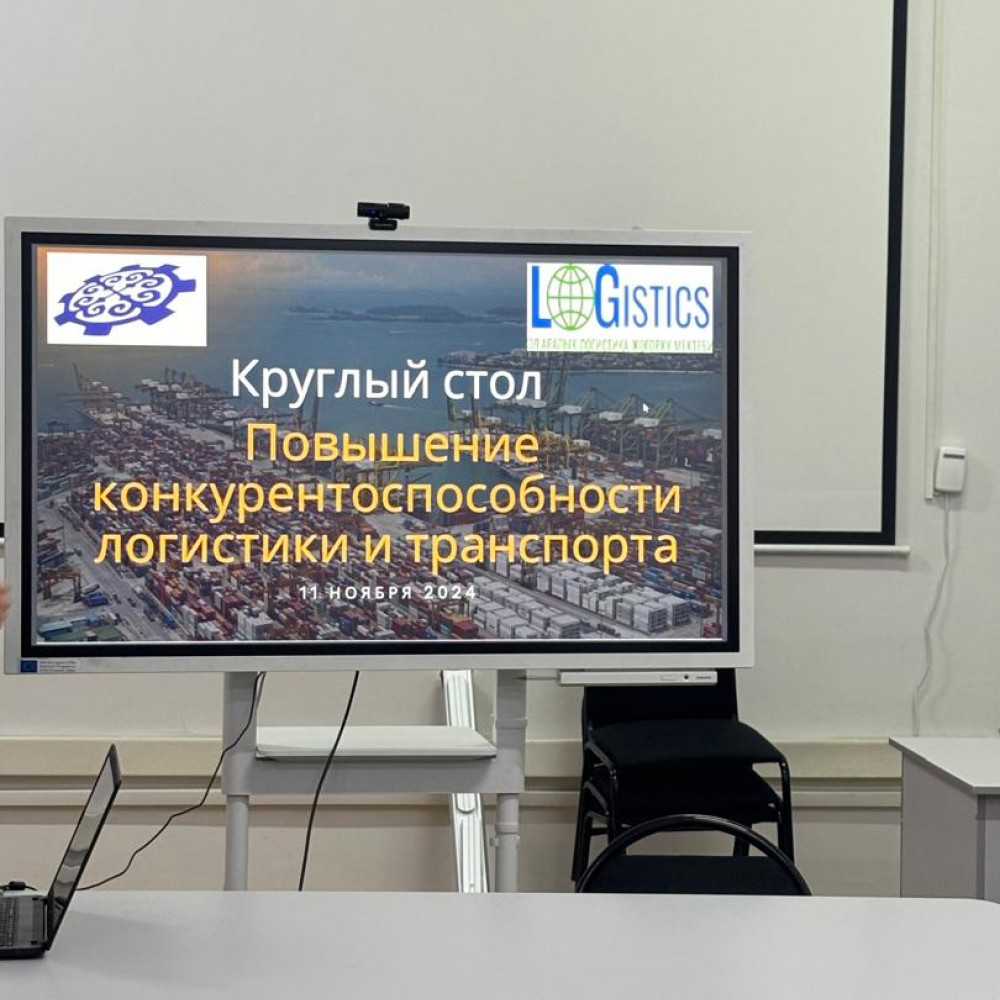
On November 11, 2024, a round table was held in the laboratory of the International Higher School of Logistics on issues of increasing the competitiveness of logistics and transport. The event was attended by doctoral students, master's students, representatives of government agencies, business and experts in the field of logistics.
The main goal of the round table was to discuss modern challenges and opportunities for optimizing logistics processes in a rapidly changing market. Opening the event, the director of the International Higher School of Logistics A.S. Umetaliev noted the importance of integrating innovative technologies and a systematic approach to improve the efficiency of cargo transportation.
During the panel discussion several key topics were discussed:
Innovation and digitalization: Representative of the logistics company “Gallery”, doctoral student of the International Higher School of Logistics Mukanov T.A., 2023 became the winner of the USAID Regional Project on Water Resources and the Environment and received funding of $5,000 for the implementation of his project “SMART WATER”, a mobile irrigation complex for canals with a turbulent flow regime with the possibility of generating electricity.” He said that in the face of growing demand for water resources, as well as problems with their shortage, efficient logistics is becoming a key factor in ensuring sustainable agricultural production and minimizing losses. Today, practical production and testing of the “Smart Water” irrigation complex of 2 types is underway jointly with Deutsche Gesellschaft für Internationale Zusammenarbeit (GIZ) GmbH (German Society for International Cooperation) within the framework of the program “Green Economy and Sustainable Development of the Private Sector in the Kyrgyz Republic” cost of the project is 25,000 euros.
Environmental aspects: Environmental initiatives became an important topic of discussion. Kayyrbekov Almaz Damirbekovich, PhD doctoral student at the International Higher School of Logistics at KSTU, head of the procurement department of the Ministry of Economy and Commerce of the Kyrgyz Republic, made a report “Prerequisites for organizing a supply chain for halal products of Kyrgyzstan for export.” He noted that in the food market in the Kyrgyz Republic, halal is at the initial stage of its development, but consumers have already begun to pay attention to products labeled “halal.” Halal industry will allow the Kyrgyz Republic to attract additional investment into the economy and increase its export potential to foreign countries, since the halal industry is primarily aimed at mobilizing capital for production and ensuring the flow of investment into the real sector of the economy.
Infrastructure development: Representative of the Russian University of Transport (MIIT), Ilya Viktorovich Okhotnikov, emphasized the importance of investing in the modernization of the road network and the development of multimodal transport hubs, which can significantly reduce delivery time and reduce costs.
Human resources and personnel training: The round table also touched upon the problem of training qualified personnel for the industry. Irina Goncharova, senior procurement specialist at the World Bank, in her report “Purchasing Logistics Efficiency in State-Owned Enterprises” introduced an initiative to create new educational programs in collaboration with universities to train students in modern logistics technologies and techniques.
First-year master's students also made interesting presentations: Akmatova A., Sovetkul kyzy Myrzagul, Dzhumalieva A., Absamatova E.
At the end of the round table, the participants agreed that in order to increase the competitiveness of logistics and transport, it is necessary not only to introduce new technologies, but also to take into account the interaction of all participants in the logistics chain. All guests expressed hope for further cooperation and joint projects aimed at developing the industry.